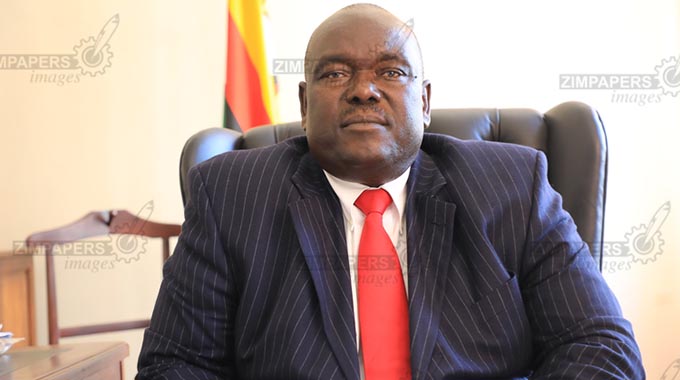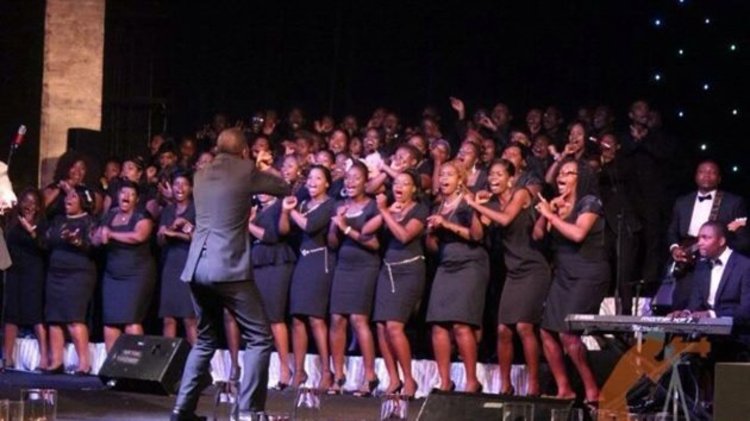Chiwoniso’s Ancient Voices silenced too soon

Chiwoniso Maraire was blessed with a moving voice that reached into your heart. Resonator in hand, with her mbira securely ensconced inside, her songs told the stories of modern Zimbabwean urban life.
Her music changed lives and influenced a whole generation of performers who followed in her footsteps. This makes her untimely death at 37, in July 2013, that much more devastating as it robbed Zimbabwean music of a shining diamond and a musical revolutionary who helped reimagine a whole culture’s relationship with the mbira.
Maraire was that rare musical superstar who remained humble and grounded in spite of global stardom. To many of her fans, she was just Chiwoniso, Sister Chi, or simply Chi. Through a seemingly alchemical process, she composed and performed songs for a younger generation of Zimbabweans, who grooved effortlessly to her modern take on the ancient, traditional mbira instrument. Maraire would step on stage, a vision in a designer Countess K dress, her locks framing her face, while making the mbira issue forth songs of love and loss. More than any artist before her time, she brought the mbira into the 21st century. She made the instrument cool for people of our generation.
I don’t remember the first time I met Maraire. I vaguely remember hanging out with her as a teenager at a friend’s house in the early 2000s. I remember watching her, in 2012, jump on stage to perform with my favourite mbira punk band, Chikwata.263, at the Harare International Festival of the Arts. Later that year, I remember her loudly protesting in the back seat of a friend’s car as we tried to take her home. She wanted to stop for one more drink at a notorious local pub, Londoner’s Sports Bar, which was usually the last stop at the end of the night for Harare’s drunken revellers.
The first time I and many others heard her sing was the sweet lilt of her voice in the chorus of the hit song “From The Native Tongue” by A Peace of Ebony on Radio 3 in the early 1990s. Founded in 1992 by friends Herbert Schwamborn and Tony Chihota, Peace (Positive Existence Allowing Cultural Expression) Of Ebony was the first Zimbabwean rap group to release a commercial album to local and international acclaim. Rapper Schwamborn recalls hanging out with Chihota at fast-food outlet Chicken Inn on Inez Terrace in Harare’s CBD when he first heard Maraire beatboxing and singing off the cuff. Impressed, they invited her to add vocals and record tracks for their album “From The Native Tongue”. Maraire features on the title track, her vocal contribution bold, melodic and sure. Their follow-up single, Pretend It Never Happened, also did well on the local charts. But it was the title track and album that had a huge impact in Zimbabwe and South Africa, where it was released by the now defunct Teal Trutone Music.
Precocious genius
Maraire was very young then – only 15 – and had just moved to Zimbabwe from the United States, where she was born and her parents had been based. Freshly transplanted to Zimbabwe, Schwamborn remembers that he and Chihota had to visit her father, renowned mbira and marimba professor Dumisani Maraire, to ask permission for his daughter to join the band. He was a familiar face in ethnomusicology departments in the US, and was friends with many South Africans exiled there, including trumpeter Hugh Masekela.
“Very young, spirited woman. Very independent. Chi seemed like she was always in a constant state of meditation. She was always just so mellow. Nothing ever fazed Chi. In my whole history of knowing Chi I have never seen her angry. Never seen her cry. She was always very peaceful all the time,” says Schwamborn.
From The Native Tongue, released in 1991, was the hit album that introduced Maraire to Zimbabweans and the world. Schwamborn says the album was inspired in part by the native tongue movement coming out of New York. “We just said hey, they are trying to be what we are,” he says, referring to performers such as De La Soul, The Jungle Brothers, A Tribe Called Quest, Queen Latifah and others.
In 1994, A Peace of Ebony won the Best New Group out of Southern Africa award in the Radio France International Discovery contest for Vadzimu, a rap track with Shona and French lyrics. It was again Maraire’s voice, melodic and clear as a bird’s, that stood out and made people sit up and pay attention. But even though she began to gain momentum as a singer in her late teens in Zimbabwe, this was not her first time as a performer in the spotlight.
Child of Chimanimani
Growing up in a musical family whose ancestors hailed from Chakohwa in the mountains of Chimanimani near Mozambique, Maraire was bound to have some music in her. She learned to play mbira from her father. Her four siblings, Tawona, Ziyanai, Dumisani and Rusununguko (now deceased), took part in the playing and learning too. Her younger sister Tawona says: “Baba (father) taught us — me, Chiwoniso, Ziyanai and Rusununguko — how to play marimba. But it was Chiwoniso and Rusununguko who were more interested in the mbira at a young age. Ziyanai and I performed with Baba and Chiwoniso in Mhuri yaMaraire (The Maraire Family), which was our mbira group. Ziyanai played hosho (shakers) and I played ngoma (drums) while Baba and Chiwoniso played mbira.”
It was clear from the outset that the Maraire children had music running through their veins. Younger brother Tendai found success with the Seattle-based hip-hop groups Shabazz Palaces and Chimurenga Renaissance. Half-brother Dumisani Jr has had a successful career in music too, recently releasing an album called African American. But it is Maraire who translated this early exposure to playing the mbira — combined with her innate and undeniable talent — to widespread international critical acclaim.
Renowned poet and frequent collaborator Chirikure Chirikure says of Maraire’s relationship with her father: “She was very close to the heart of her father. Dumi really, really loved her. It’s very unfair to say maybe she was the favourite among all of the siblings, but it was very clear. She also very well loved him and she respected him. They would go around pretty much like siblings, not like father and daughter.”
Maraire taught his daughter how to play the nyunga nyunga mbira, a more modern version of the ancient mbira carried forth through the generations by our ancestors. The nyunga nyunga (Shona for sparkle sparkle) is unlike the nhare mbira, which has a wider range of notes and keys. In Maraire’s hands, the nyunga nyunga didindeed sparkle as she drew her audiences into a trance-like state common when listening to mbira music.
Legendary producer Keith Farquharson, who played keyboard in the 1980s Zimbabwean superband Ilanga, produced From The Native Tongue. But Peace of Ebony disbanded soon after they released Vadzimu with Schwamborn (now known as Metaphysics) and Chihota (now known as Tony Capone) pursuing solo rap projects. Not long after the disbandment, Farquharson invited Maraire to lay down vocals on music he was producing for former Ilanga band mate and guitar maestro Andy Brown and his band, The Storm.
The ballad of Maraire and
Andy Brown
Farquharson recalls: “It was very easy to work with her — she was always full of great ideas and it was a wonderful thing to see her develop and mature as a musician. She nearly always nailed her vocals on the first take. I was recording Gondwanaland with Andy Brown at the time and told him I wanted to use Chi for some of the backing vocals. He told me that he didn’t think she could sing in tune! I insisted — and she ended up in his band and became his wife.”
Maraire began to sing backing vocals for Brown as well as collaborating with him as a band member of The Storm. Most agree that Brown heavily influenced Maraire’s musical direction as she began to come into her own as a solo performer. She influenced him too. A critically and commercially acclaimed musical genius in his own right, Brown was a maverick musician who played his part in shaping music in Zimbabwe. Along with The Storm, the two went up and down performance venues all over the country, from Harare’s urban posh venues north of Samora Machel Avenue (the thoroughfare which splits Harare in two: north and south, rich and poor) down to the country’s rural growth points and beyond on global tours. A master musician and producer, Brown played a significant role in Maraire’s musical development and in her personal life.
As creatives, they inspired each other, and it was not long before a musical collaboration turned into a passionate romance. Soon Maraire was pregnant with their first child, Chengeto, and Brown paid lobola in spite of her father’s objections to the union. Two years later, their second daughter, Chiedza, was born. But it was not all roses, as Maraire and Brown had a notoriously tumultuous relationship, with allegations levelled against him of physical and emotional abuse.
Of her parents, Chengeto Brown says: “My father was a great man. He was also a flawed man. My mother was a great woman. She was also a flawed woman. They were just some very powerful individuals, on a mental level and on a spiritual level. They were just some very powerful beings. When they came together sparks flew, but you don’t want those sparks to burn the building down! They met each other in the wrong lifetime, but they were definitely soulmates. They had a real respect for each other’s musical capabilities.”
Their passionate relationship lit a creative fire that gave us Maraire’s debut album, Ancient Voices. Released in 1998, Ancient Voices was a ground-breaking record that merged Maraire’s mbira skills and extraordinary vocals with Brown’s mastery of the guitar. Combined with Farquharson’s production, the results were the now classic tunes “Mai”, “Wandirasa”, “Ivai Nesu” and “Nhemamusasa”. The plaintive Mai, a mid-tempo number, was an ode to her mother, Linda Chengeto Maraire, who died in 1997. With “Nhemamusasa”, the traditional mbira tune is creatively reimagined with Brown’s omnipresent guitar riff, joyful trumpets and percussion. The plaintive and emotive “Ivai Nesu” is a favourite of many, and the song of love and loss “Wandirasa” was also a standout hit.
Of her songs, Farquharson says: “She had the ability to construct beautiful vocal melodies — whether in Shona or in English – that appealed to people across all cultures. She was an incredible songwriter.”
Collaborations in live performances and studio sessions followed with a number of musicians: Kris Kristofferson, Habib Koite, Sam Mtukudzi, Max Wild, multinational group Woman’s Voice and many more. A young and then unknown Jah Prayzah walked all the way to her house in Bluffhill at the western edge of the city to ask her to play on his track Dande. To this day, many musicians speak openly of her love of collaborating with and sharing the stage with other performers.
Becoming a star in her own right
Ancient Voices put Marire on the musical map. It heralded her break away from Brown and The Storm to pursue a solo career. On the live music performance scene, she and her ensemble were known as Chiwoniso and Vibe Culture, incorporating former band mates from The Storm: mbira player Adam Chisvo and, occasionally, Brown on guitar and Jacob Mafuleni on percussion. Martha Thom performed along with them as a solitary dancer. She also continued to collaborate with poet Chirikure Chirikure, a family friend. They first performed together in high school as part of a group called Detembira (a portmanteau of detembo — Shonafor poem — and mbira). Her father performed with them. After he passed away, they continued to work together, Chirikure performing his poetry and Maraire playing mbira in accompaniment.
Explaining their collaboration on Ancient Voices, Chirikure says: “I remember I went to her house and she was sitting on the couch cross-legged playing mbira on her own. She didn’t even notice I had walked in and she was singing Mwari baba ivai nhesu, and she was playing it over and over again and kept getting frustrated, making mistakes. I said to her, ‘This is a good song.’ But she said, ‘I just have the chorus. I don’t have the body.’ I asked her if she wanted the body of the song and she said yes. So I wrote it overnight and sent it to her the next day. She looked at it and within a week she had put it together. From there on, every album of hers I would write a minimum of two songs for her.”
Ancient Voices made Maraire a star and showcased her talent as a singer and musician. She then became in demand on stages across the globe. When people would mention the top five musicians from Zimbabwe, Maraire would always be one of them, an extraordinary feat for a woman who had only just turned 21. In 1999, Radio France awarded Maraire the Decouverte Afrique for Ancient Voices. In the same year, she was also nominated for Best Female Vocals for the Kora All-Africa Music Awards. Ancient Voices entered the World Music Charts in Europe three times.
I remember being in the US in 2003, where she was scheduled to perform at the Pritzker Pavilion concert series in downtown Chicago. Unfortunately, she missed her flight and could not make it. I recall the lady who was sitting next to me — a big fan, she told me — being so disappointed that she didn’t get a chance to see Maraire perform live for the first time. It wasn’t just abroad either. In Zimbabwe she became a household name and her songs were played on every radio station. This made people familiar with her songs even if they did not get a chance to see her perform live. At music centres and colleges, budding young musicians used her songs to learn how to play the mbira. — newframe.com








Comments